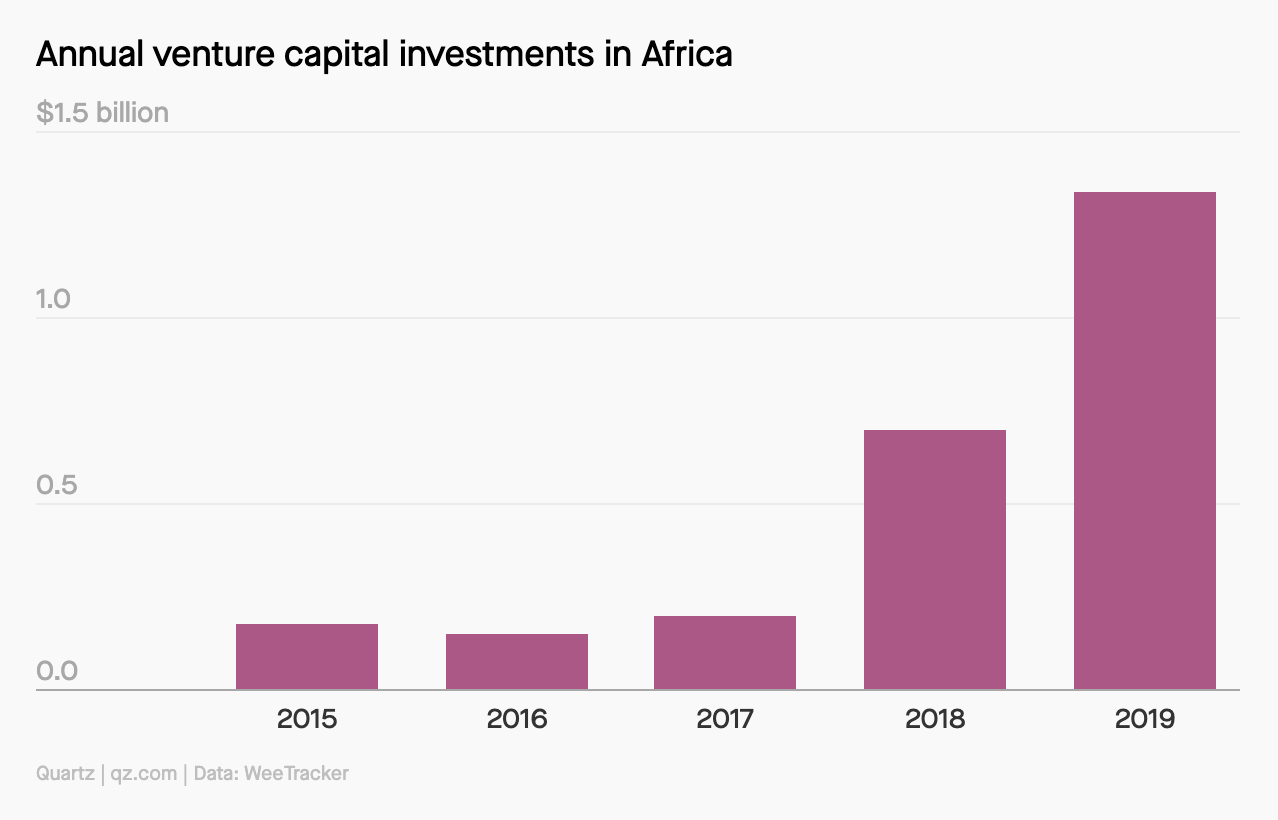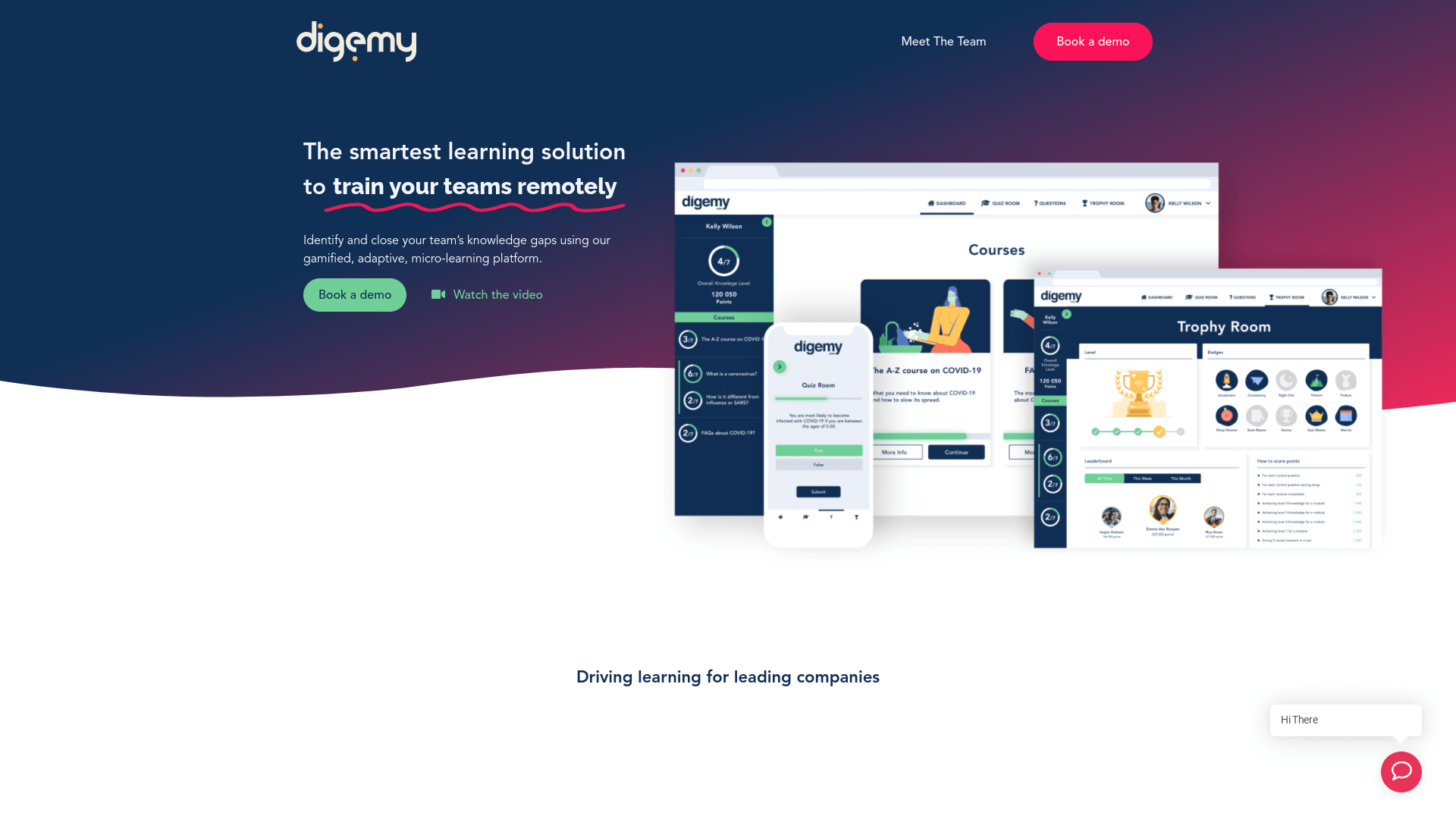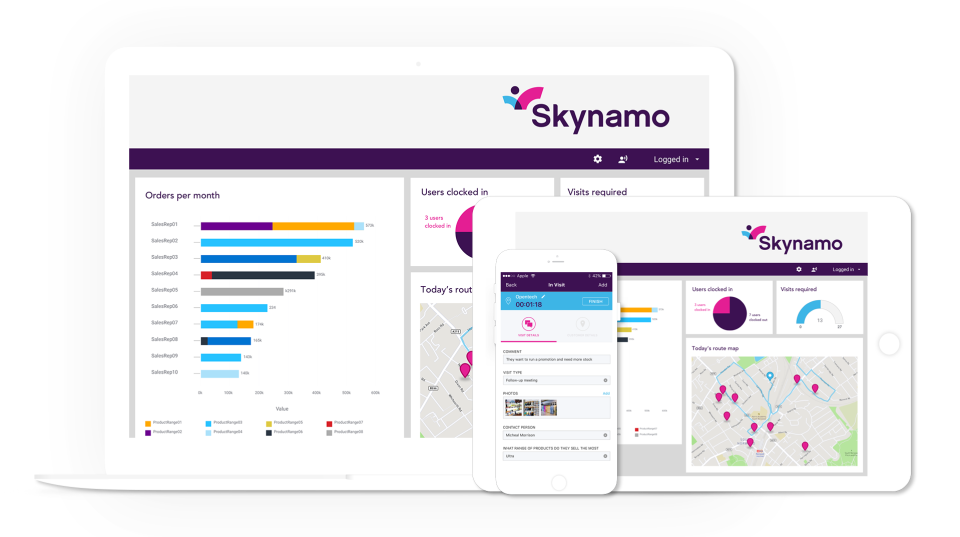Top 10 Most Promising Startups in South Africa 2022

Top 10 Most Promising Startups in South Africa 2022
South Africa’s economy is one of the world’s fastest-growing economies, giving it an ideal environment for entrepreneurs and investors. In South Africa, there are already a large number of startups with a few unicorns, and the investment is pouring in. The number of multi-million dollar enterprises on the continent is on the rise, with African entrepreneurs raising over $1 billion in the first half of 2021 alone. Its tech sector also has a flourishing media presence, that helps to magnify startup success stories, which helps to promote the culture and encourage more founders to take their ideas from concept to reality.
Because of the growing VC presence and funding in the country, numerous South African entrepreneurs have been able to survive and thrive in recent years. South Africa has long been regarded as Africa’s crown jewel, with the continent’s largest economy and one of the most sophisticated infrastructure networks. With a population of over 58 million people, South Africa has the personnel to build a fantastic startup environment, and many South African entrepreneurs are given the chance to build top startups and businesses that can grow to become international stars.

There are multiple reasons why South Africa is at the top of the list, it outperforms other economies in terms of access to finance, from early-stage to seed to series fundraising rounds. The venture capital industry is the most developed, no other country has a VC network as active as the Southern African Venture Capital and Private Equity Association, which has been around for two decades. Business regulations encourage entrepreneurship and innovation, and the government is a significant supporter of new businesses. South Africa provides a suitable network for entrepreneurs to develop, with over 80 active hubs and the continent’s oldest incubator.
A range of stakeholders in South Africa’s startup ecosystem provide non-financial business help, mentoring, and co-working facilities. Founders Factory, Silicon Cape, Jozihub, MEST, and the government’s Support Programme for Industrial Innovation (SPII), which promotes innovation and technology development in South Africa’s industry, are key players. Entrepreneurs in South Africa have access to venture capital, private equity, crowdsourcing, debt, grants, and equity investors for financial services and smart money for startup growth.
On the African continent, South Africa boasts the best startup ecosystem.4Di Capital, Knife Capital, Fundrr, Uprise Africa, and AngelHub Ventures are among the major investors in this country. South Africa, the continent’s southernmost country, has grown into a major commercial, industrial, and cultural hub. In the year 2019, the country received $67 million in startup funding. Thanks to the country’s four primary innovation centres – Cape Town, Johannesburg, Pretoria, and Port Elizabeth – the South African startup ecosystem is on its way to becoming robust and established.
These are the Most Promising Startups in South Africa in 2022.
1. Pineapple
Sector- Financial Technology and Insurance Technology
Products & Services- Insurance Services
Founders- Matthew Elan Smith, Maarnus Van Heerden and Ndabenhle Junior Ngulube
Date Of Starting- 2017
Company Stage- Series A
Number of Investors- 7
Key Investors- Lireas, ASISA, Hartford InsurTech Hub and Venture Clash
Funding Rounds- 6
Total Funding Amount- $ 5.85 Million
Valuation- $ 15.8 Million

Pineapple is a South African financial technology startup. The firm offers rapid and reasonable insurance. Pineapple’s app was created to be a more efficient and straightforward way to obtain insurance; simply take a photo of the thing you wish to insure, and the artificial intelligence within the app will detect it and provide coverage. It’s great for those who are unsure about what to insure and what not to insure, thanks to simple money-saving features like the button to switch off insurance. Johannesburg, South Africa, is where the startup’s headquarters are located.
Pineapple allows you to insure your belongings and vehicle in the blink of an eye. By reorganising the way insurance is performed, it hopes to increase value, affinity, and simplicity in the insurance market. Individuals can compare P&C insurance through its app. It provides quotes for items such as home electronics, bicycles, cameras, drones, furniture and appliances, phones, sports equipment, and more. It also provides aid with claims. The app is compatible with both Android and iOS devices.
Marnus van Heerden, Matthew Elan Smith, and Ndabenhle Junior Ngulube formed the insurance company in 2017. The three met as part of a six-month innovation competition organised by Hannover-Re in 2016 to develop innovative models in the reinsurance/insurance industry. Because it calls itself a Digital Financial Services Provider, the organisation does not underwrite insurance claims. This is something that its partner, Old Mutual Insurance, does. Pineapple promises to be a flexible, scalable, and decentralised peer-to-peer insurer that provides full-fledged insurance coverage to its users.
The startup has raised $9 million in total capital from eight investors across five funding rounds. Pineapple, an insur-tech business, has acquired $3.4 million in Series A funding to expand into the car insurance industry after growing by 200 per cent in the last six months, according to the company. Lireas Holdings, the ASISA Enterprise and Supplier Development Fund, E4E Africa, Vunani Capital, and Old Mutual’s Enterprise and Supplier Development Fund are among the participants in this round. The investment was made because of the app’s planned capabilities, according to E4E Principal Bakang Komanyane.
The cash will be used to develop the company’s operations as well as increase its international alliances. In the United States, this includes a relationship with Travelers insurance. Pineapple previously earned $400,000 in startup finance in 2017 with the help of Lireas Holdings. In mid-2018, the app was released. It allows users to swiftly and conveniently insure their automobile or goods, as well as provide a digital policy management solution. Pineapple was named on the Insurtech 100 list by UK digital transformation platform and UK newspaper Insurance Post in 2020.
Pineapple is on a mission to strengthen insurer-insured trust by providing outstanding customer experiences backed by cutting-edge technology and a unique strategy. The software also provides incentives to users, such as app prizes and discounts, based on their driving patterns. The insurance is underwritten by Old Mutual Insure, and Hannover-Re, the app’s founding innovation partner, serves as its reinsurer and strategic partner. Pineapple was named MTN Consumer App of the Year shortly after its launch. It was also the first insurance-related startup to be approved for Google’s Launchpad Accelerator Program.
In brief, Pineapple sees several flaws in the existing insurance model, user journey, and products, and has set out to address them by accomplishing the following- Changing the business model to match incentives, demonstrating how premiums are used and reimbursing members for any premiums that are not used. It also makes insurance as simple as taking a photo, with AI taking care of the rest and coverage delivered in under 60 seconds. It offers per-item insurance and new product innovation to address coverage that is not currently available or accessible to a large number of people.
Pineapple debuted in South Africa in 2018 with “My Stuff,” a per-item insurance product, and has subsequently expanded to include “My Ride,” a car insurance product. It has also worked with Travelers in the United States, where it had white-labelled its platform. Individuals can compare P&C insurance through its app. It provides quotes for items such as home electronics, bicycles, cameras, drones, furniture and appliances, phones, sports equipment, and more. It also provides aid with claims.
2. FloatPays
Sector- Financial Technology, Training and Human Resources
Products & Services- Financial Services
Founder- Simon Ward
Date Of Starting- 2019
Geographical Range- South Africa
Company Stage- Seed
Number of Investors- 15
Key Investors- Naspers, Y Combinator, Global Founders Capital and MFS Investment Management
Funding Rounds- 3
Total Funding Amount- $ 5.12 Million
Valuation- $ 24 Million

Floatpays is the next generation of employee benefits, allowing companies to recruit, retain, and engage the greatest employees at all levels. It has improved the value proposition for employees. The startup assists employees in reducing their dependency on debt, saving, and learning better money management skills. Floatpays empowers employees to create financial wellness through on-demand earned salary access, paycheck linked savings, and financial education. Floatpays Ltd is an authorised financial services provider under the Financial Advisory and Intermediary Services Act (Act No. 37 of 2002).
Floatpays began as a “little firm with big goals to create a financially inclusive Africa,” according to its website. It was started as a social impact-driven startup to help employees get out of negative debt cycles and into savings and long-term financial wellbeing. When mid-pay cycle liquidity becomes a problem, its objective is to educate employees on better personal finance management, assist them with financial planning and saving, and provide an alternative to payday lenders/high-interest credit solutions. The headquarters of the company is in South Africa.
Payroll integration, employee access, financial, effective reporting, payment, and training are all services provided by FloatPays. The startup is helping its employees to attain financial well-being and go from debt to savings through access, budgeting, and training. The startup is situated in Cape Town and was created in 2019. Floatpays, a fintech that helps employees create financial wellness and offers a solution to companies looking to improve their employee value proposition, has raised just under $4 million in an oversubscribed seed round.
In 2022, FloatPays will be the next South African startup to watch. It’s a fintech company that specialises in financial services for the education, human resources, and training industries. Financial education, payroll linked savings, and training are some of the services provided by FloatPays to businesses to help their employees manage their money. Businesses that participate in FloatPays are investing in their employees and, as a result, in the company itself. When money stress is alleviated, one’s health and productivity can increase.
With this investment, it will be able to strengthen its position in South Africa while also expanding into the rest of Africa. Simon Ward launched the financial startup in 2019, in Johannesburg, South Africa. The startup has so far raised $5.1 million in total capital. This was accomplished throughout three investment rounds with a total of fifteen investors. Floatpay’s objective of creating a “financially resilient and financially healthy workforce in Africa” attracted several famous venture capitalists and angel investors to the round.
It is speeding up the development of key features that complement its existing product, such as its new interest-bearing savings account that’s directly linked to employees’ paychecks, says Floatpays founder. It has entered the Y Combinator accelerator programme in July 2021, a programme that has funded several startups that have gone on to become multi-billion-dollar businesses. Airbnb, Stripe, Dropbox, DoorDash, and Instacart are among them. It is said that Floatpays is the only startup from South Africa in the Y Combinator summer class, making it the fewest in the program’s history.
Global Founders Capital, Base Capital, Finca Ventures, Raba Partnership, and 4DX Ventures were among the industry heavyweights that contributed to its capital, which is critical for Floatpay’s next phase of expansion. A total of four angel investors contributed to the seed round of fundraising. Alan Rutledge, a seed investor in over 410 firms globally, Shaun Hurwitz, a serial investor and business magnate, Youcef Oudjidane, the current Managing Partner of Class 5 Global, an American venture fund investing firm, and Olugbenga Agboola, the co-founder and CEO of Flutterwave are among them.
Despite the setback of Covid-19, Floatpays has grown its employer base by 43 per cent and its user base by 70 per cent since its start. It is a market leader in the earned salary area and is on its way to becoming the continent’s most trusted brand. Floatpay wants to achieve its goal of becoming the preferred financial services platform for Africa’s big and rising workforce. It is a provider of Earned Wage Access and allows employees to use their earned salaries to pay unanticipated bills. Employees can also acquire financial education and tools to help them plan and manage their budgets.
3. Digemy
Sector- Education Technology, E-learning
Products & Services- Online Learning Management
Founder- Kobus Louw
Date Of Starting- 2017
Company Stage- Seed
Number of Investors- 4
Key Investors- Triga Ventures and Green World Capital
Funding Rounds- 2
Total Funding Amount- $ 230 K

Digemy, situated in Cape Town, South Africa is an educational technology startup that works with training providers. Digemy assists these training providers in transforming their in-person, physical workshops into successful digital seminars that can be accessed from anywhere. It might be tough to create an educational learning platform because online participation is generally lower than in a classroom. Digemy, on the other hand, is striving to address this by engaging with industry experts, conducting research, animating, drawing, and putting content into films to offer individualised learning.
It is a startup that provides an online learning management platform. Allows businesses to produce and distribute learning content. Audios, videos, texts, and PDFs are all included in the courses. Microlearning is a feature that allows you to divide up learning courses into tiny sessions. It is available on desktop, tablet, and mobile devices. It also has an innovative learning algorithm that helps students remember what they’ve learned. As a white-label platform, it is available. Digemy was formed by Kobus Louw in 2017 and is based in Cape Town, South Africa.
The startup is an educational technology that assists training providers in converting their physical workshops into engaging and successful online learning. With its innovative learning platform, it is a South African educational technology startup. It continuously assesses the learner’s knowledge before and during each course, then generates individual learning curves for each learner depending on what they know and don’t know. In January 2017 and September 2019, its two funding rounds were completed, totalling $68.5K.
Any course designer can utilise the platform since text, video, and audio content can be simply loaded using their content management system, and learners can access it through PC, tablet, or mobile. The courses are data-light and ideal for learning in a variety of settings, including the classroom and on the go. Digemy is a modern, gamified e-learning solution that assesses and closes knowledge gaps using complicated algorithms, and gives each user with a personalised and expedited learning journey. The platform ensures that students learn not just to pass checkboxes, but to master the topic and be able to use what they’ve learned in their everyday life.
It has also developed a series of financial literacy classes for South Africans and Africans. The Digemy Knowledge Partner hosts the Besmarta financial literacy series, which includes 5 hours of financial literacy content in text, video, and audio format. They also educate students on how to automate their money, manage their debt, develop effective budgets and debt payback plans, and control their expenses to grow their savings and net worth, as well as how to set SMARTA, measurable financial objectives using the SMARTA goal-setting approach.
Digemy, a South African ed-tech firm, has built a gamified, data-light e-learning platform to educate users about COVID-19 and how behaviour modification might help halt the global pandemic’s growth. The startup, a provider of educational technology platforms to corporations, was founded in early 2017 to focus on the creation and retention of information rather than the consumption of learning materials.
It offers educational training solutions to businesses that emphasise the acquisition and retention of knowledge rather than the consumption of information. To unleash higher performance potential, the platform empowers and gives enterprises in-depth insights into their employees’ knowledge levels, from course level to the most granular level of every syllabus. It provides training content in bite-size bits as part of a personalised learning strategy. The company fully mobilises learning by distributing text, audio, and video course content. Micro-modules allow users to learn while on the go or waiting for appointments.
Digemy is now working with businesses to use its besmarta platform in their businesses. The company is also assisting businesses in the creation of their online schools to aid in employee and customer education. They also provide their platform as a Software-as-a-Service (SaaS) solution and design specialised courses. It has signed four publicly traded firms as clients, including pharmaceutical company Cipla and transaction capital software firm Principa, and had risen its valuation five times in the last 18 months, according to reports.
The business has also completed a proof of concept with one of South Africa’s leading banks and is claimed to be working on a deal with Deloitte. It is placed in the top five for Best Enterprise Solution at the AppsAfrica Awards in 2018, earned an MTN Business App of the Year award for its besmarta solution, and was just voted Africa Tech Week’s second-best tech company in 2019.
4. Aerobotics
Sector- Agriculture Technology, Artificial Intelligence, Farming and Software
Products & Services- Farm Management Solutions
Founders- James Paterson and Benjamin Meltzer
Date Of Starting- 2014
Geographical Range- Africa, Europe and U.S.
Company Stage- Series B
Number of Investors- 17
Key Investors- Naspers, FMO, Endeavor and Africinvest
Funding Rounds- 5
Total Funding Amount- $ 27.1 Million
Valuation- $ 102 Million

Aerobotics is a South Africa-based startup that creates and provides agricultural and farming technology using artificial intelligence, software, drones, and machine learning. Aerobotics, in particular, creates crop insights using data analytics and artificial intelligence based on information obtained from drone imagery. Farmers can then have a greater understanding of their crops, allowing them to boost their farming efficiency. Benji Meltzer and James Paterson started this ag-tech startup in 2014, and it is now based in Cape Town, South Africa. Its mission is to develop intelligent tools to help feed the world’s hungry people.
It is a data analytics startup that uses drone photography and machine learning algorithms to help farmers all around the world improve crop production. It’s mobile and web applications, enable farmers to interact with this data. It has expanded to an 85-person team since being launched in 2014 by James Paterson (CEO) and Benji Meltzer (CTO). To date, it has assisted farmers in the management of over 65 million trees with clients in 18 countries, including Africa, the United States, Spain, and Australia. The startup has raised $27 million in total capital from seventeen investors throughout eight funding rounds.
It currently has two main offices in Cape Town and Los Angeles, as well as its Sales Managers on the ground all over the world who work remotely and spend their days with its growers. Aerobotics, a South African firm that develops intelligent solutions for the global agriculture business, has secured $17 million in a Series B investment that was oversubscribed. According to Aerobotics, Naspers, a South African consumer internet company, led the round with a $5.6 million investment through its investment arm, Naspers Foundry. Also present were Cathay AfricInvest Innovation, FMO, Entrepreneurial Development Bank, and Platform Investment Partners.
Aerobotics was founded to develop tools for fruit and tree farmers. Its technology uses artificial intelligence, drones, and other robotics to track and assess the health of these crops, such as detecting sick trees, tracking pests and diseases, and providing analytics for better production management. By gathering and analysing both tree and fruit footage from citrus growers early in the season, the business has advanced its technology and now offers farmers independent and dependable yield estimations and harvest timetables.
Farmers may then plan their supply, forecast demand, and ensure that their customers receive the highest quality produce possible. In recent years, Aerobotics has undergone unprecedented growth. For starters, it claims to hold the world’s largest proprietary tree and citrus fruit database, having processed 81 million trees and over a million citrus fruit. The startup’s principal market is the United States, where it claims to have two provisional patents pending, one for systems and methods for evaluating tree age and the other for systems and techniques for predicting yield.
The startup, which has been around for seven years, is situated in Cape Town, South Africa. Aerobotics has found a lot of traction for its services outside of Africa, at a time when many African businesses have concentrated their efforts exclusively on finding and solving problems at home. It operates in 18 countries spanning Africa, the Americas, Europe, and Australia, and has offices in the United States, Australia, and Portugal all of which, like Africa, is home to other important global agricultural industries.
The startup intends to use the Series B investment to continue developing new technologies and product distribution for the US and international markets, according to the company. Aerobotics is a company that specialises in farm monitoring and pest management. AI-enabled pest detection, disease detection, drone photography services, and orchard and yield management are among the company’s services.
It is dedicated to offering intelligent tools that improve automation, reduce inputs, and increase output. It looks forward to working with the agricultural industry’s leaders to further enhance its goods. Agritech businesses such as Aerobotics, which support climate-smart agriculture and assist farmers, have sprung up in an attempt to restore the industry’s former grandeur. Investors have taken note of this startup, and investments have flowed at an incredible rate during the last five years.
5. Watobe
Sector- Education Technology, E-learning, Tutoringand STEM Education
Products & Services- Online Tutoring Services
Founders- Erik Lonnroth and Henry Warren
Date Of Starting- 2019
Geographical Range- South Africa
Company Stage- Seed
Number of Investors- 2
Key Investors- Twinkl and MPA Education
Funding Rounds- 2
Total Funding Amount- $ 1.1 Million

Watobe is an ed-tech startup. It is located in Cape Town, South Africa. Watobe provides live and on-demand online maths lessons for African students. It is an economical, high-quality alternative to in-person tutoring that was launched in South Africa in 2019 and is now moving to other regions throughout the continent. Math-related learning solutions are available through its online platform. For kids in grades 7 through 12, the platform includes learning videos, one-on-one tutoring, problem-based exercises, and more.
In 2019, Henry Warren, a former director of innovation at Pearson, and Erik Lönnroth, also ex-Pearson and a former consultant at PwC, created Watobe. It offers a digital learning platform that strives to address the issues that African students and education systems confront by collaborating with parents and students to help them understand ideas, fill in gaps, and achieve in their studies. The platform delivers online mathematics courses for African students in grades 7 to 12 in the form of both streaming and on-demand content that includes videos, activities, quizzes, and one-on-one mentor support.
Watobe is currently only operating in South Africa, but it has intentions to expand into other African countries. The startup has raised $1.1 million to date, according to Crunchbase. In April 2020, the company raised $500,000 in a pre-seed fundraising round. Watobe, a South African education technology firm that helps math students, recently announced that it has raised $636,000 in preliminary funding round from educational publisher Twinkl. The Cape Town-based EdTech startup has joined TwinklHive, a business accelerator that partners with and supports entrepreneurs and organisations with a shared aim to assist educators and enhance learning experiences.
In 2022, Watobe is the African startup to keep an eye on. It’s a math-learning startup that provides a platform for those who desire to learn the subject. Students that use the Watobe platform can access live and on-demand programming. This learning platform makes education more accessible to individuals who need to study during the day. This additional instruction is also significantly less expensive than hiring a private teacher. The company has raised $1.1 million in total capital from two investors and two funding rounds.
6. Lipa Payments
Sector- Financial Technology, Software and Payments
Products & Services- Financial Services
Founder- Roger Bukuru
Date Of Starting- 2020
Geographical Range- South Africa
Company Stage- Seed
Number of Investors- 2
Key Investors- Imvelo Ventures and Empowerment Capital
Funding Rounds- 1
Total Funding Amount- $ 10 Million

Lipa Payments is a payment software solution for banks and fintech companies that enables small businesses to accept digital payments via NFC and Bluetooth. Lipa Payments is a startup based in South Africa. The company has developed technology that allows businesses and sellers to make it easier for their customers to pay. Customers are increasingly opting for contactless payment because of its quickness and convenience. Businesses can utilise Lipa Payments to accept contactless payments without the need for additional hardware. It is a to watch this year because of the software it is developing.
Lipa Payments, a South African FinTech startup, is bringing its Tap to Pay service to Africa’s “informal” sectors via its software platform, which allows businesses to accept contactless payments from a mobile phone. According to the study, Lipa collaborates with banks and FinTechs to provide cheap, accessible, and fast payments for merchants, even if they have low-end mobile phones. The startup, founded by Roger Bukuru and Thando Hlongwane in 2019, wants to address the digital age’s lack of adequate and secure payment mechanisms.
Lipa develops software that enables shops to accept contactless payments without the need for extra hardware. Consumers can also make contactless payments from their mobile phones with ease and security thanks to this technology. For merchants and enterprises, NFC-enabled POS solutions are available. It allows merchants to accept contactless payments from customers using NFC-enabled credit and debit cards. It has check-out options, wallet-based payments, and other features.
Since its inception, the company has raised ZAR10 million from a single investor. Lipa received $650,000 from Imvelo Ventures in 2020, with Empowerment Capital Investment Partners as partners. In Nigeria and South Africa, the business is ready to introduce its digital payment system. By advancing their operations with digital payments, the Lipa Payments system improves the experience for informal merchants. For these retailers and their cash-carrying consumers, it opens up a whole new universe of possibilities.
Even if they don’t have near-field capabilities or internet connectivity at the time of the transaction, informal merchants can accept and make phone-to-phone payments utilising Bluetooth technology, or take bank card payments through Lipa using a smartphone. The Lipa platform allows banks and FinTechs to provide consumers contactless phone-to-phone payments without requiring merchants to purchase POS hardware. Empowerment Capital’s Imvelo Ventures, which is sponsored by Capitec Bank, has invested ZAR10 million (US$660,000) in the startup.
Lipa Payments will use the funds to expand its solution across South Africa and Nigeria in 2022. The startup sees technology as a scalable instrument for addressing common problems. Lipa Payments takes care of that. First, it provides low-cost technology for small-scale merchants to take digital payments at the point of sale, and second, it enables customers of goods and services to pay digitally without worrying about cash or network access. Lipa Payments uses new methods and technology to create an easy and secure way to pay and accept payments. Its technology is simple to comprehend and use.
7. Lula Lend
Sector- Financial Technology
Products & Services- Financial Services
Founder- Trevor Gosling and Neil Welman
Date Of Starting- 2014
Geographical Range- South Africa
Company Stage- Series A
Number of Investors- 9
Key Investors- Accion, Norfund, Quona Capital and International Finance Corporation
Funding Rounds- 2
Total Funding Amount- $ 6.5 Million

Lulalend, a fintech lending startup established in South Africa, provides financing to underserved small and medium-sized businesses (“SMEs”). The startup provides loans to borrowers in the “missing middle” of small enterprises, who are unable to obtain funding from traditional financial institutions or microfinance lenders. According to recent estimates, only 2% of MSMEs have access to bank loans, with the missing middle being the hardest hit, as these businesses are regarded as too large for microfinance and too tiny for regular banks.
Lulalend was founded in 2014 by Neil Welman and Trevor Gosling. The company has a headquarters in Cape Town, South Africa. LulaLend is more than just a business. It’s a belief in small businesses ability to make a difference, create a better solutions, and strive for perfection. The startup works hard to provide funding to small businesses around South Africa to help them grow. This startup has raised a total of $6.5 million in two investment rounds from five investors.
It is an online platform for small business financing. On the site, users with a minimum of one year in business and a turnover of over R500,000 can request loans. They can use the money to buy inventory, hire workers, launch marketing campaigns, buy equipment, remodel/renovate, open new locations, manage cash flow, deal with unforeseen expenses, and bridge receivables gaps, among other things. The site evaluates loan applicants using its proprietary scoring algorithm.
Lulalend provides up to R5 million in small business funding to companies that have been in operation for at least a year and have a monthly turnover of R40,000. Its online application process is simple, quick, and secure. Apply online, receive a decision, and receive funding within 24 hours. Lulalend is a FinTech firm that believes in the power of small businesses, in making a difference, developing better solutions, and is aiming for greatness. It works hard to provide funding to businesses in South Africa so that they can expand.
Customers of Lulalend are important contributors to the economy and a substantial source of employment, with MSMEs employing 50-60% of South Africa’s workforce. The South African fintech ecosystem has spawned a slew of new enterprises in infrastructure, payments, processing, lending, and remittances, with Lulalend emerging as the region’s market leader in unsecured loans for small businesses. LulaLend has received a USD 7 million investment from Blue Earth Capital.
This startup is a registered non-bank financial organisation based in Cape Town that provides unsecured working capital loans to SME owners and lone traders who are unable to obtain finance from regular banking institutions. The company evaluates loan applications from potential borrowers using a proprietary credit underwriting process to offer short-term loans up to USD 150,000. Lulalend can distribute loans considerably faster than typical banking institutions since it creates a digital experience from start to finish.
Lulalend, based in South Africa, is a rapidly developing fintech startup. This company works with small businesses throughout South Africa to provide financial assistance. It provides financial assistance through an online loan platform that is quick and simple to use. Lulalend’s funds are invested in the South African economy, assisting businesses in achieving their goals for growth. Lulalend provides a wide range of lending options to businesses in need of money without the need for collateral, as well as speedy underwriting and digital loan disbursement.
8. Inclusivity Solutions
Sector- Insurance, Insurance Technology and Financial Technology
Products & Services- Insurance Software Solutions
Founder- Jeremy Leach
Date Of Starting- 2015
Geographical Range- South Africa
Company Stage- Series A
Number of Investors- 8
Key Investors- L Marks, LHoFT, Goodwill Investments and Inclusive Fintech 50
Funding Rounds- 3
Total Funding Amount- $ 5.8 Million

Inclusivity Solutions is a fintech startup based in South Africa that specialises in insurance technology and emerging markets. The company develops all-inclusive digital insurance markets to cover its consumers’ mobile phones. Inclusivity Solutions claims that its insurance is more affordable and straightforward than standard insurance products and that it is better suited to its target market. The company was started by Jeremy Leach in 2015. The company’s headquarters are located in Cape Town, South Africa.
Inclusivity Solutions creates digital insurance solutions that allow financial inclusion and close the protection gap in emerging countries by designing, building, operating, and innovating. It collaborates with mobile operators, banks, insurance firms, and other financial organisations to provide simple and affordable insurance coverage via mobile devices. It assists these partners in growing their core companies by acquiring new consumers, maintaining existing customers, and generating new revenue streams all while ensuring that their customers are protected against unanticipated risks.
It specialises in extending markets to include underserved and unserved customers to safeguard them from shocks that can have long-term financial ramifications. Up to 98 per cent of individuals in emerging economies are uninsured against risks such as accidents, illness, mortality, natural catastrophes, and crop destruction, according to estimates. Traditional insurance products, distribution strategies, and administration systems, on the other hand, are unsuitable and inefficient for serving these new customers.
This startup provides insurance solutions that address the demands of emerging consumers and take advantage of the widespread availability of digital platforms, such as mobile phones, to reach the broadest possible audience. It provides the strategy, product and process design, implementation support, and platforms necessary to not only introduce and grow digital insurance solutions but also to build inclusive and sustainable insurance markets. Inclusivity Solutions specialises in developing digital insurance marketplaces that are open to all.
It uses its global expertise and best practices to assist mobile operators, insurers, and other partners in providing long-term insurance solutions to emerging customers. Reinsurance Group of America, Incorporated (NYSE: RGA), a global leader in the life reinsurance sector, has backed Inclusivity Solutions. RGA provides specialised solutions in individual life reinsurance, individual living benefits reinsurance, group reinsurance, financial solutions, facultative underwriting, and product creation from operations in 26 countries across the world.
This startup has raised US$1.56 million in the first tranche of its Series A fundraising round and has now raised another US$1.3 million from Goodwell Investments, UW Ventures in association with Allan Gray, and new investor MFS Africa. In total, $5.8 million has been raised in three investment rounds. These were held in March 2015, June 2019, and May 2020, respectively. The funds will be used to expand the company’s reach in existing areas, support additional international expansion, and speed up innovation in the company’s backbone technology platform, which supports its current offerings.
Its tried-and-true insurance platform interfaces with the systems of its partners to provide a fully digital consumer experience. Its technology unlocks the business case for low-cost insurance while revolutionising the consumer experience, from sales to policy management, premium collection to claims. Because of the agility and scalability of its platform, it can swiftly develop breakthrough products that can benefit millions of people. Inclusivity Solutions has already implemented digital insurance efforts in Ivory Coast, Rwanda, and Kenya, with their hospital cash and simple life products protecting over 700,000 people.
Inclusivity Solutions provides insurance products that cater to the needs of developing consumers and make use of digital channels such as mobile phones to reach the largest possible audience. It delivers the strategy, product, and process design, implementation assistance, and platforms needed to not only introduce and grow digital insurance solutions but also to build long-term inclusive insurance markets. RGA Ventures Ltd, a subsidiary of the Reinsurance Group of America, is their backer.
9. Centbee
Sector- Financial Technology and Cryptocurrency
Products & Services- Financial Services and Cryptocurrency Wallet
Founder- Angus Brown and Lorien Gamaroff
Date Of Starting- 2016
Geographical Range- South Africa
Company Stage- Series A
Number of Investors- 4
Key Investors- nChain, Paper Plane Ventures and GTwo Hop Management
Funding Rounds- 3
Total Funding Amount- $ 1.27 Million

Centbee is a business-to-consumer payment service startup that offers cross-border transfers and a digital wallet. It created an easy-to-use app in 2017 that allows financially disadvantaged clients to buy a wide range of critical digital items and send money to family and friends quickly and affordably. Centbee was launched in 2017 by Angus Brown and Lorien Gamaroff. It has its headquarters in Gauteng, South Africa. Centbee is a cryptocurrency-related payment startup that specialises in merchant payments, cross-border remittances, and other cryptocurrency-related services.
The declared purpose of the organisation, which was founded in 2017, is to “Bring Bitcoin to Africa.” For financial services, the South African startup is experimenting with blockchain technology. Centbee provides a user-friendly app for moving money to its consumers. The business has devised a cost-effective and time-efficient method of carrying out these tasks. Users may send money to their friends and family without having to leave the app, as well as shop at their favourite retailers, all in one spot.
It offers a cryptocurrency cold wallet using an app. Users can transfer, receive, and store cryptocurrency with it. In South Africa, it enables fund transfers from a bank account as well as retail lanes. It also provides merchant payments, cross-border remittances, and other services. It’s available for both Android and iOS. The business has raised $1.3 million in three fundraising rounds. Three investors participated in the three investment rounds, which took place in January 2018, April 2019, and February 2020. Centbee is a Bitcoin wallet that makes it simple for customers to buy, store, and spend Bitcoin with retailers and other businesses.
Bitcoin SV is Centbee’s preferred blockchain since it is the only one that adheres to the original Bitcoin design and protocol. The Intergovernmental Fintech Working Group (IFWG) of South Africa has announced the inaugural cohort of its regulatory sandbox, which includes Centbee, a Bitcoin SV (BSV) fintech firm. It is the first BSV startup to be put in the sandbox of the South African regulator. Under the competent supervision of applicable regulators, the regulatory sandbox allows market innovators to test novel products and services that push the boundaries of existing regulations.
Minit Money, Centbee’s cross-border remittance app, was chosen to participate in a study to see how cryptocurrency assets are treated by regulators for low-value cross-border transfers between South Africa and Ghana. Minit Money is a service that allows ex-pats living in South Africa to transfer money to their home countries in Africa at a minimal cost. Money is cleared in the receiver’s bank or mobile money account within minutes after registration via an innovative mobile app. Money can be loaded at any of the country’s approximately 100,000 retail locations.
Lorien Gamaroff and Angus Brown, co-CEOs of Centbee, launched the company in South Africa. Gamaroff is a top expert in blockchain and cryptocurrency technologies. He has consulted and advised regulators and corporations all over the world, and he is a well-known educator and presenter. Brown has 20 years of expertise in payments and banking, including serving as CEO of eBucks.com, the first bank-backed digital currency in the world, which he founded in 2000.
Centbee has made it simple for customers in South Africa to purchase Bitcoin SV at over 50 000 point-of-sale locations. It will be able to assist customers in moving money across borders quickly and affordably to support family and friends. The money will go toward product development, scaling, and expansion. Centbee is a gold member of AlphaCode, which is sponsored by Rand Merchant Investment Holdings and seeks out disruptive and scalable fintech companies to collaborate with and grow.
10. Skynamo
Sector- Software and CRM
Products & Services- Field Sales Management
Founder- Sam Clarke
Date Of Starting- 2012
Geographical Range-
Company Stage- Series A
Number of Investors- 4
Key Investors- Endeavor, Five Elms Capital and Alpha Wave
Funding Rounds- 2
Total Funding Amount- $ 32.1 Million

Skynamo is based in Stellenbosch, Cape Town, South Africa, and was created in 2012. It is a field sales management programme that is hosted in the cloud. Its features include administrative work automation, remote order submission, mobile customer contact capture, real-time location and route monitoring, task and visit scheduling, and form completion. There is a subscription-based pricing model. Lancewood, Bokomo Foods, Henties, Chipkins, and other companies are among its clients.
Skynamo is a field sales app used by manufacturers, wholesalers, and distributors with existing customer bases. The startup assists managers and their teams in shifting the sales discussion from one of fear and uncertainty to one of transparency and trust. Managers are turned from micromanagers to coaches, and salespeople are transformed from order takers to value-adding consultants to their customers, thanks to the company’s transparency and trust.
It boosts sales efficiency by providing tools and data analytics to help with planning, management, and decision-making. Remote order submission, administrative work automation, and customer contact capture on mobile devices are among its primary features. Manufacturers, distributors, and wholesalers with sales teams in the field visiting customers regularly utilise Skynamo as a B2B Field Sales / Outside Sales management and productivity platform. Skynamo’s integration capability accelerates the ordering process and enhances order accuracy, order fulfilment, and time to invoice.
Remote order submission, administrative process automation, and customer contact capture on mobile devices are all of its key aspects. Sales managers can observe sales activities in the field in real-time or via an automatically generated chronology of customer visits and order submissions thanks to GPS technology. Customer and sales productivity insights are gained through management dashboards and survey tools. In the first year, field sales teams using Skynamo often double and in some cases triple the number of customers they visit per week while also increasing income by up to 20%.
Skynamo’s headquarters are in Stellenbosch, South Africa, and it has offices in Johannesburg and Durban, South Africa, London, United Kingdom, and Atlanta, United States. The company serves nearly 1,000 customers in industries such as food and beverage, building materials and hardware, chemicals and paints, and automotive goods. Skynamo is an Acumatica, Sage, and Xero certified partner and app. Skynamo was one of the few tech companies in the world to acquire ISO 27001:2013 certification in 2019, the global standard for information security.
Five Elms Capital, a leading software investor, is investing $30 million in Skynamo, a field sales app and management platform supplier. Skynamo plans to utilise the funds to expand its field sales mobile app and cloud-based management platform, as well as scale up operations, to better serve its quickly growing customer base in the United States, the United Kingdom, and Southern Africa. Skynamo’s customers are served from offices in South Africa and London, while the company’s US headquarters is in Atlanta. For field sales teams on the go, Skynamo’s integration capability accelerates the ordering process and enhances order accuracy, order fulfilment, and time to invoice.
By digitising paper-based processes, automating administrative activities, and providing fast access to customer and product information in the field, Skynamo improves sales rep efficiency and effectiveness. Managers can coach their salespeople remotely using GPS technology, which gives them a real-time snapshot of sales activity and effectiveness in the field. While on the road or onsite at a customer, Skynamo connects with ERP and accounting software such as Sage, Acumatica, SAP, Xero, and Quickbooks to offer field sales professionals the most up-to-date product and customer information as well as order history.
Conclusion
South Africa has been working to improve its startup ecosystem. Despite the positive results of the initiatives, the majority of the activity is centred in the cities of Johannesburg and Cape Town. It has a slew of accelerators, incubators, venture capitalists, and other helpful institutions. The key difficulty, though, is to increase entrepreneur awareness of the possibilities accessible to them. South Africa will develop as a global hub for startups and entrepreneurs as a result of the government’s desire to collaborate with the private sector to improve the entrepreneurial landscape, increase economic growth, and create jobs.




